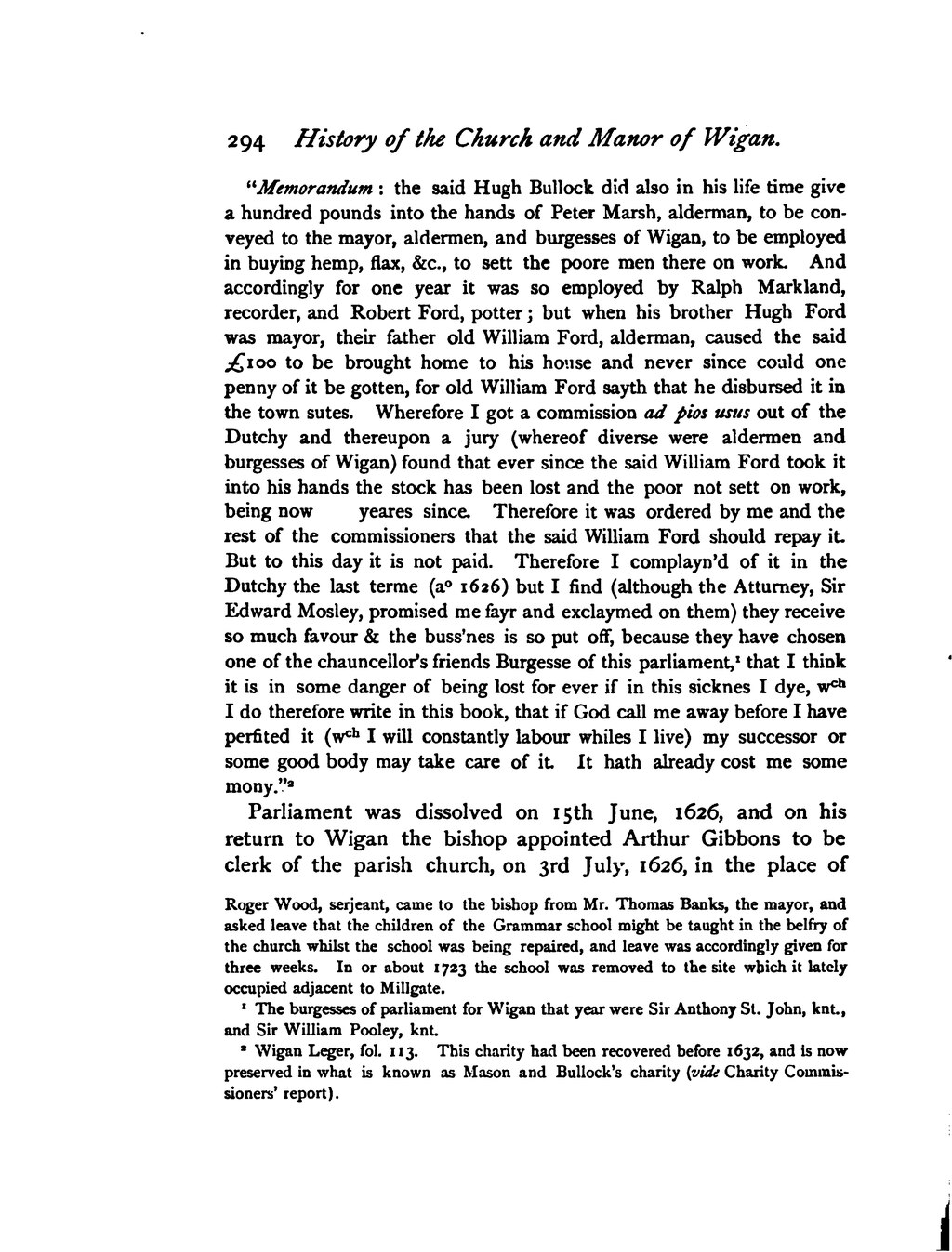"Memorandum: the said Hugh Bullock did also in his life time give a hundred pounds into the hands of Peter Marsh, alderman, to be conveyed to the mayor, aldermen, and burgesses of Wigan, to be employed in buying hemp, flax, &c., to sett the poore men there on work. And accordingly for one year it was so employed by Ralph Markland, recorder, and Robert Ford, potter; but when his brother Hugh Ford was mayor, their father old William Ford, alderman, caused the said £100 to be brought home to his house and never since could one penny of it be gotten, for old William Ford sayth that he disbursed it in the town sutes. Wherefore I got a commission ad pios usus out of the Dutchy and thereupon a jury (whereof diverse were aldermen and burgesses of Wigan) found that ever since the said William Ford took it into his hands the stock has been lost and the poor not sett on work, being now yeares since. Therefore it was ordered by me and the rest of the commissioners that the said William Ford should repay it. But to this day it is not paid. Therefore I complayn'd of it in the Dutchy the last terme (ao 1626) but I find (although the Atturney, Sir Edward Mosley, promised me fayr and exclaymed on them) they receive so much favour & the buss'nes is so put off, because they have chosen one of the chauncellor's friends Burgesse of this parliament,[1] that I think it is in some danger of being lost for ever if in this sicknes I dye, wch I do therefore write in this book, that if God call me away before I have perfited it (wch I will constantly labour whiles I live) my successor or some good body may take care of it. It hath already cost me some mony."[2]
Parliament was dissolved on 15th June, 1626, and on his return to Wigan the bishop appointed Arthur Gibbons to be clerk of the parish church, on 3rd July, 1626, in the place of
- ↑ The burgesses of parliament for Wigan that year were Sir Anthony St. John, knt., and Sir William Pooley, knt.
- ↑ Wigan Leger, fol. 113. This charity had been recovered before 1632, and is now preserved in what is known as Mason and Bullock's charity (vide Charity Commissioners' report).
Roger Wood, Serjeant, came to the bishop from Mr. Thomas Banks, the mayor, and asked leave that the children of the Grammar school might be taught in the belfry of the church whilst the school was being repaired, and leave was accordingly given for three weeks. In or about 1723 the school was removed to the site which it lately occupied adjacent to Millgate.
